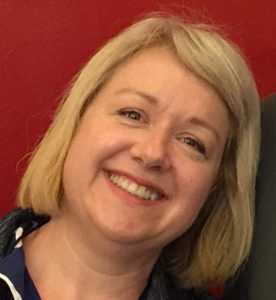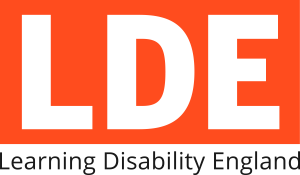‘We need to radically rethink how we offer housing and support to people with learning disabilities’ says Alicia Wood, Chief Executive of Learning Disability England, as the Department of Health opens bidding for £25 million of funding to create properly adapted housing.
Graham’s story
Graham was 32 when his mother’s health deteriorated and she became unable to cope with managing her own health and caring for him. Graham has learning disabilities and needs a bit of help to do everyday tasks, but this is mainly reminding him to do what he needs to do and making sure he can get out and about to see friends.
The council offered Graham a place in a supported housing scheme. He didn’t want to live there; it was too far away from his family home and community. He wanted his own place and to live near his mother, but that was all there was. He moved in and became anxious and angry, hitting out at support staff and people he shared with until – eventually – he was moved to an assessment and treatment unit even further away from his mother. He is still there now, and can’t come back to his community because of a lack of local services.

Graham’s story is familiar to us at Learning Disability England. The approach of building houses and filling them with people with learning disabilities is often the default when what we need is a more flexible and person centred approach.
These approaches to housing and support are often assumed to be unaffordable, but we also know that putting the wrong service in place can be a false economy – and be very costly in the long term.
Some people want to live with others, some people want (and need) to live alone. Some people need support around the clock and some need less support and the back up of an 'on-call' service or assistive technology.
Most people want to be connected with their communities, friends and family. This requires a mixed economy of housing and support models in communities so that we can be more flexible and respond to local needs.
 In every community, people with learning disabilities should have the option to buy their own home through HOLD (Home Ownership for people with Learning Disabilities), rent privately, or apply for ordinary social housing, as well as having access to supported housing and extra care. They should be able to live in community networks to give and receive social and peer support. Sometimes the solution might be as simple as adapting or extending the family home or putting in some assistive technology.
In every community, people with learning disabilities should have the option to buy their own home through HOLD (Home Ownership for people with Learning Disabilities), rent privately, or apply for ordinary social housing, as well as having access to supported housing and extra care. They should be able to live in community networks to give and receive social and peer support. Sometimes the solution might be as simple as adapting or extending the family home or putting in some assistive technology.
Dealing with loneliness and isolation with new models of housing and support is crucial. Housing and support providers need to start thinking ‘community’ and connecting people up with their communities and peers.
Imagine a community where people with learning disabilities have a real role in making that community a better place, where people are seen as real contributors to society and have a valued place. This doesn’t cost much but requires a different way of thinking and working.
We’re really looking forward to seeing proposals to the capital fund that shake up the way things are done and give people with learning disabilities a valued and supported place in their communities.
4 comments
Comment by Angela M Cavill-Burch posted on
This not only a problem for LD also a problem for physically disabled. our story can be read at onmybiketoo.blogspot.co.uk we live in totally unsuitable extra care housing that does not meet my husbands particular medical / disability needs.
Comment by Clare Wightman posted on
clear and eloquent. Thank you!
Comment by Mr R W Ebley posted on
Could the Sheltered Home vacancies be used for people with Mental Health issues?
Comment by Julie Owen posted on
My daughter has severe learning difficulties and is 'classed' as PMLD. She has a Shared Ownership bungalow through Advance Housing and MySafeHome. It's been life changing for her, although we had one hell of a fight getting a care package. The CCG and CHC Team are still living in the Dark Ages when it comes to care and disability.
Thankfully she now has DP funding from Social Services and myself and her brother are her main PAs.
The HOLD scheme needs to be expanded but always there's a lot of work to do with Building Societies as most of them wouldn't touch someone with learning difficulties with a barge pole.